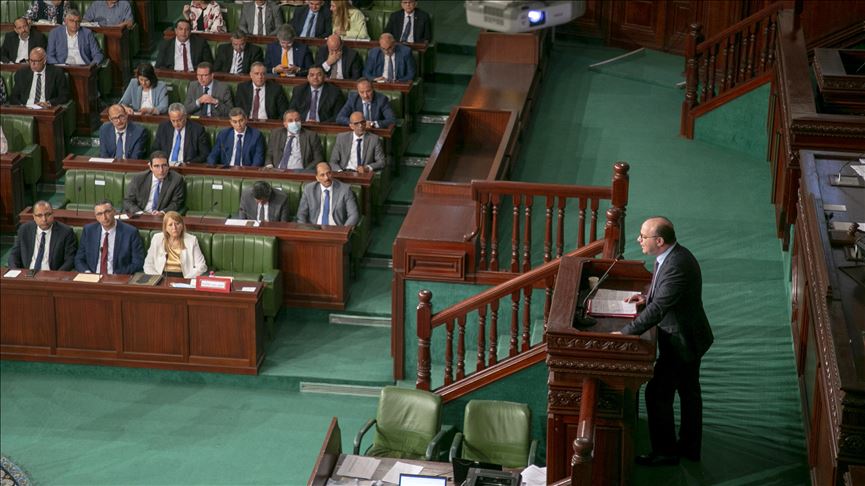
By Ihsan Mejdi
ANKARA
Elyes Fakhfakh’s resignation as Tunisia’s prime minister has sparked a crisis in a country already in the throes of economic and political turmoil.
He stepped down on Wednesday after less than six months in office, facing a no-confidence vote amid allegations of wrongdoing from Tunisia’s Anti-Corruption Commission.
A government statement said the 48-year-old resigned “taking into consideration the national interest and to avoid more difficulties for the country.”
Troubles, though, seem to be in the offing for Tunisia as the controversy, dubbed by local media as “Fakhfakh Gate,” is largely seen as just the tip of an iceberg.
Crisis and confrontation
Amid rising social unrest and economic woes aggravated by the COVID-19 pandemic, tensions between political forces in Tunisia’s parliament have escalated dramatically.
An evident lack of trust between the Ennahda Movement, the biggest party in parliament, and Fakhfakh was a major contributor.
On July 14, Ennahda proposed a no-confidence vote against the premier, with a top official asserting that the party will never accept a government headed by someone accused of corruption.
“Neither now, nor in the future,” Abdelkarim Harouni, head of the party’s Shura Council, told local media.
In response, Fakhfakh dismissed six government ministers belonging to Ennahda – Local Affairs Minister Lotfi Zitoun, Health Minister Abdellatif Mekki, Higher Education Minister Slim Choura, Youth and Sports Minister Ahmed Gaaloul, Equipment Minister Moncef Selliti, and Transport Minister Mohamed Anouar Maarouf.
The face-off coincides with a severe economic crisis, political instability, and continued social unrest in marginalized regions of Tunisia.
This raises many questions about the priorities of the country’s political elite and their seriousness in tackling the pressing social and economic problems.
Disunity among allies
The shadow of a political deadlock now looms large over Tunisia’s parliament.
On Thursday, parties and blocs including Tahya Tounes, the Democratic Movement, and the National Reform Bloc submitted a no-confidence motion against parliament speaker and Ennahda leader Rachid Ghannouchi.
Some of the motion signatories, who have accused Ghannouchi of poor management and unilateral decisions, are in coalition with Ennahda – a testament to the deepening rifts in Tunisia’s political alliances.
Over the past few weeks, several parliamentary sessions have also been interrupted by Abir Moussi, head of the Free Destourian Party (PDL).
Known for her loyalty to former President Zine El Abidine Ben Ali and her hostility towards the 2011 revolution, Moussi seems to benefit the most from the fragmented political scene and the disunity among the “revolutionary parties” – namely Attayar, Achaab, and Ennahda.
Analysts believe divisions within these parties will help the anti-revolution bloc gain momentum.
Kais Saied and the constitutional way out
As Fakhfakh continues as caretaker premier for now, President Kais Saied has to “assign the person who is most capable to form the government” within a month, as stipulated by Article 98 of the Constitution.
In case the chosen person fails to form a government or the government does not get the parliament’s backing, the president “may dissolve the parliament and organize early legislative elections.”
Such a scenario remains least favorable given the fragility of Tunisia’s democratic transition and the administrative costs of organizing an election.
Saied, who appointed Fakhfakh on Jan. 20, must be careful in choosing a successor, as Tunisia direly needs a leader who can deal with the crisis among its political elite, while simultaneously addressing the urgent socioeconomic needs of the country’s lesser developed regions.
Anadolu Agency website contains only a portion of the news stories offered to subscribers in the AA News Broadcasting System (HAS), and in summarized form. Please contact us for subscription options.



